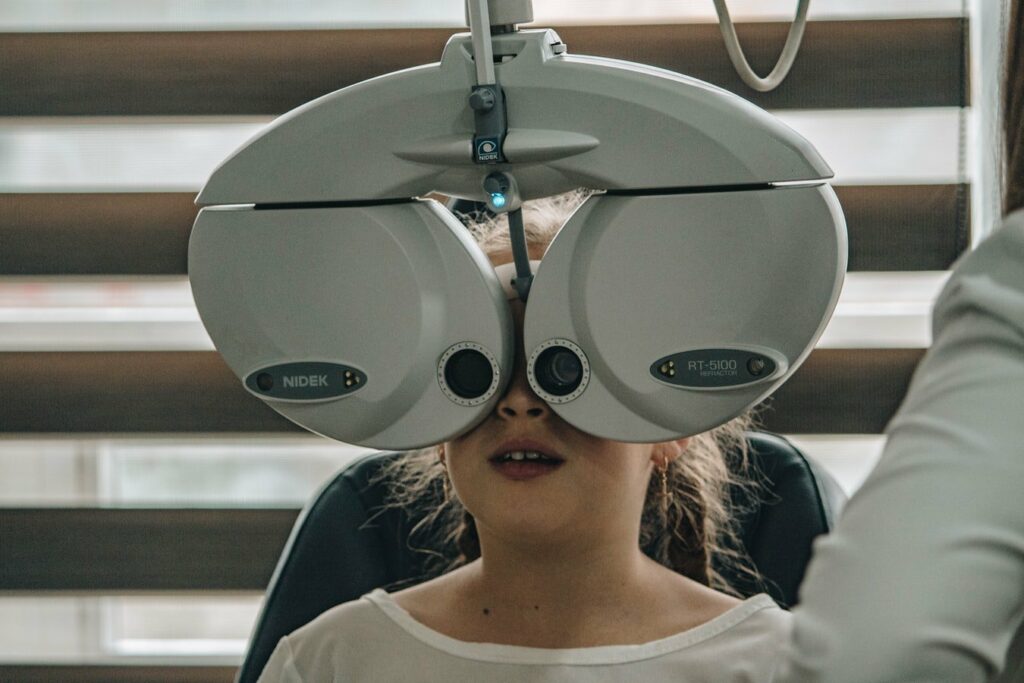The vast majority of individuals who get cataract surgery see better afterward. It is an effective and safe procedure. While there is a relatively short recovery time, you are able to participate in daily activities – within reason – pretty quickly. The doctor of yours is going to let you know instructions specific to the situation of yours.
Follow your doctor ‘s instructions to assist the recovery of yours and decrease the danger of any complications. Floaters After Cataract Surgery: What they Mean and What to do Next The lens is the component of the eye of yours that focuses light, helping you to see clearly. Cataracts cause the lens of your eye to be cloudy, making it more difficult to see. Surgery is usually used to get rid of cataracts. During this surgery, a doctor is going to remove the clouded lens and replace it with a brand new artificial lens.
Like any kind of procedure, cataract eye surgery has a few possible side effects – one of these is floaters.
Continue reading to find out about floaters, why cataract surgery may result in them, and the way they are treated.
What exactly are floaters?
Floaters are dark shapes that move, and float, across the field of yours of vision. They may be described in ways that are many, such as:
- spots
- specks
- bubbles
- hairs
- strings
- squiggly lines
- webs
Floaters move with the eyes of yours, which makes looking at them right somewhat difficult. Nevertheless, whenever you stop moving the eyes of yours, you will notice that floaters will go on to drift across the field of yours of vision.

Usually, floaters happen because of natural age-related changes that occur in the eye of yours. Thus, precisely what are they?
Your eye has a gel like substance called the vitreous. The vitreous helps to keep the shape of the eye of yours. Additionally, it contains fibers that link it to the surface area of the retina of yours, the rear portion of the eye of yours that senses light.
As you age, fibers in the vitreous can start to contract (shrink) and move from the retina. They could also stick or perhaps clump together. When this occurs, shadows are cast onto the retina of yours. These shadows seem to you as floaters.
Why can cataract surgery cause floaters?
Individuals who have had cataract surgery are at an increased risk of developing floaters. You will find a number of possible causes of floaters after cataract surgery. Let us explore them below.
Preexisting floaters It is likely that the floaters existed before you’d your cataract surgery. Because cataract surgery helps to clear the vision of yours, you might be seeing preexisting floaters more clearly after the process.
Posterior vitreous detachment (PVD)
PVD is the process where vitreous shrinks and pulls from the retina. This typically happens naturally as we grow old and also can cause floaters.
Cataract surgery involves manipulating the eye to place a brand new lens. This may lead to shifting of the vitreous, causing PVD. Other factors that could contribute to the development of PVD from cataract surgery include things like:
- surgical technique
- complications during the surgery
- preexisting eye conditions, for example severe nearsightedness
Retinal tear or perhaps detachment In cases that are rare, PVD from cataract surgery is able to result in a tear in the retina. This may happen whether vitreous fibers continue to tug on the retina during or perhaps after surgery.
The force applied to the retina is able to cause a tear to form. Retinal tears are able to progress to retinal detachment. Both problems are able to result in vision loss in the affected eye. Floaters can be a sign of a retinal tear or perhaps detachment.
Other causes Floaters are able to have other causes aside from what we have talked about above. A few other possible causes of floaters include:
- eye infections
- eye injury
- bleeding inside the eye
- uveitis, an inflammation associated with a particular tissue in your eye known as the uvea What are the signs of a serious postsurgical side effect?
Floaters is an indication of a potentially serious side effect after cataract surgery, like a retinal tear or perhaps detachment. Various other symptoms of these circumstances include:
sudden flashes of light
a gray curtain that blocks part of the field of yours of vision
a shadow in your peripheral (side) vision
Various other symptoms of a serious postsurgical side effect from cataract surgery are:
- eye pain that does not go away with medication
- very red eyes
- some type of vision loss
In case you have any of the symptoms described above, contact an eye doctor instantly or perhaps head to the emergency room.

How are floaters treated after cataract surgery?
The treatment for floaters after cataract surgery is determined by what is causing them. An eye doctor is going to use a dilated eye exam to help you determine what could be causing the floaters of yours.
If floaters are happening obviously on account of PVD or aging, they usually do not require treatment.
Nevertheless, if floaters are significantly impacting the quality of yours of life or even the ability of yours to see, an eye doctor may suggest a procedure known as a vitrectomy. This procedure removes the vitreous from the eye of yours and replaces it with saline. If the vitrectomy is done for treating a retinal detachment, then the vitreous may be replaced with oil or air.
Small retinal tears may be repaired using a laser or perhaps a freezing probe. Nevertheless, retinal detachments or large tears are going to need to be treated surgically. In this case, you can find several different surgical procedures which may be used.
What is the outlook for individuals with floaters?
The outlook for floaters is usually good. In a number of folks, floaters may go away over a period of months or weeks. In other instances, you might adjust to the presence of floaters and never see them as much.
Individuals with very severe floaters that impact the vision of theirs and everyday life could be treated with vitrectomy. Nevertheless, this treatment has its own risks and side effects, therefore make sure you go over these with an eye doctor first.
Retinal detachments or tears can potentially result in permanent vision loss. Nevertheless, treatment with a procedure or perhaps surgery often works in case these problems are detected and addressed soon.
The takeaway It is likely that you may experience eye floaters following cataract surgery. You will find a number of potential reasons for this.
Because cataract surgery helps to improve the field of yours of vision, you might only be seeing floaters much more clearly that existed before the surgery of yours. In cases that are rare, floaters may be an indication of a considerably more serious condition like a retinal tear or perhaps detachment.
Floaters is an indication of a potentially serious surgical side effect. Contact the eye doctor quickly in case you’ve floaters after cataract surgery. They are able to conduct an eye exam to help you determine the cause.
More to read:
Use this info to improve your cataract surgery recovery process
Avoid these things after a lasik eye surgery
Do this during your laser eye surgery recovery process




